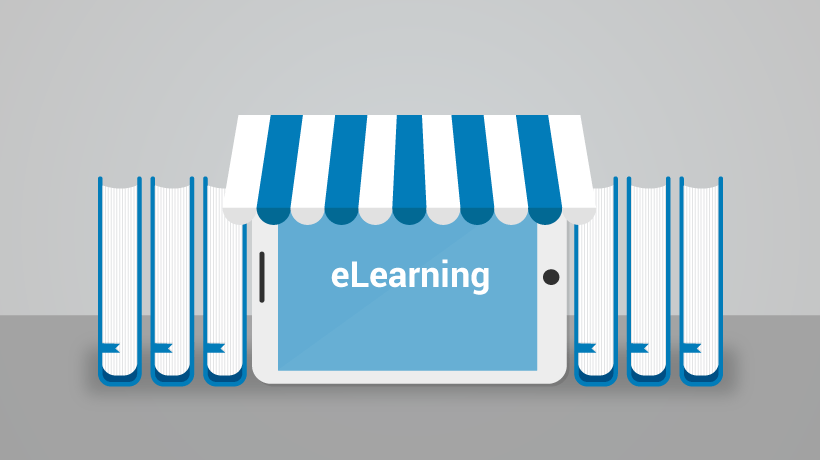How To Select The Right LMS Vendor
Everyone knows that selecting the right Learning Management System is critical to the success of learning and training programs. Every selection process should allow plenty of time for due diligence to ensure that the platform you choose is robust, reliable, and fits your requirements. But selecting the right LMS vendor is just as important. Whatever your requirements, every organization needs a provider they can trust. Everything from the security and reliability of the platform, to a sustainable pricing strategy, will hinge on the calibre of vendor you choose. According to a recent report by eLearningIndustry, 28% of organizations switch Learning Management System because they receive inadequate customer support from their provider. And no organization can afford to be left scrambling for a replacement solution if a vendor suddenly goes out of business. It's crucial that your team is confident in trusting a provider with the data, content, and processes they'll manage every day. But how do you decide who to trust? To make the best decision, you should look past branding and marketing to see the real substance of what a vendor stands for. Beyond googling, there are simple steps you can take to support your decision-making. In this article, I'll outline the best tips I've gathered from ten years in the industry to help you select the right LMS vendor, as well as the right Learning Management System.
- Background: Has the vendor lived eLearning?
There's only one real advantage to selecting a brand new LMS vendor. Usually, their prices will be among the lowest in the market to allow them to compete with established providers. But selecting a vendor without a verifiable track record comes with serious risks most organizations aren't willing to take. Asking these questions will help you to get a sense of the provider's eLearning pedigree:- How long has the vendor been in the industry?
The most established LMS vendor isn't always the best choice. The longest-standing eLearning providers can come with legacy issues newer solutions have addressed. But to have full confidence in a vendor, it helps to know that they've weathered a few years in the volatile eLearning market. Three is enough to feel confident that the provider has developed a platform that's in demand. - How many customers does the vendor have?
A vendor should have enough customers to assure you that the business is sustainable. In addition to the total number of customers, check if a vendor has clients in similar industries, or with a similar use case to your organization. If a provider specializes in serving needs that are very different to yours, another Learning Management System may be a better fit. - How quickly has the business grown?
The size of a vendor's customer base isn't a reliable indicator of stability alone. If a vendor is already in decline, it may take time to impact the overall size of the business. Rate of growth is helpful for assessing which direction a vendor currently faces. How quickly the company has grown in the last three years will indicate if a vendor is moving towards the continued success your organization should be part of. - What are the backgrounds of the leadership team?
New players enter the eLearning market all the time. And many of those new vendors are opportunistic. A provider with an established track record will assure you that the platform hasn't been bolted together in an attempt to capitalize on the growth of eLearning. To assess if a vendor is committed to the industry, research the backgrounds of its leadership team. They should be seasoned professionals with a wealth of commercial and technical experience, so you can feel confident that they're in the Learning Management System business for the long haul.
- How long has the vendor been in the industry?
- Thought leadership: Does the vendor understand eLearning?
Beyond your assessment of the current platform, you should feel confident that a vendor has a deep understanding of what's happening at the cutting edge of eLearning. The future of a Learning Management System will look bright if its commercial and engineering teams are actively engaged in ongoing developments. Thought leadership shows that a vendor isn't maintaining a stagnant product but is invested in innovation. It's also evidence of the passion that a great Learning Management System is built on. To evaluate thought leadership, ask:- Does the vendor create quality content?
Many eLearning companies now produce content, like blog posts and white papers. But the quality of that content varies hugely. The consistent publication of high-quality content shows that a vendor has invested in providing helpful information for customers and prospects. Evidence of technical thought leadership is especially important, and harder to fake. So check if the vendor has covered weighty technical subjects, like SCORM and Flash. - Do the CEO and CTO contribute to industry debates?
It's easy for an organization to farm out the production of lightweight generic content to the most junior team members. But real thought leadership should work from the top down. Look for recent articles and conference presentations prepared by the most senior figures in the company, like the CEO and CTO. Also look for evidence that peers have engaged with their ideas: have important posts been commented on? Have articles been shared? That kind of feedback will give you a sense of how seriously the vendor's ideas are taken by their peers. - How active is the vendor on social media?
Any vendor can quickly throw up a social media profile, and many do. But a consistent stream of high-quality updates shows that the vendor has invested in communicating with their customers on multiple channels. While vanity metrics like numbers of likes or followers should be treated with scepticism, check if if the vendor has received positive comments from readers, followers, and customers.
- Does the vendor create quality content?
- Customer relationships: Is the vendor human?
Selecting the right vendor isn't just about learning who they are. How they treat you as a potential customer is just as important. Your experience of support from the point of inquiry should play a big part in your selection process. While measures like response times are easy to calculate, you should also assess how team members treat you: are they friendly, helpful, warm, patient, and, above all, human? These qualities will have a big impact on your day-to-day experience as a customer. To consider how human an LMS vendor is, ask:- Are they real people?
Look for information about individual team members on the vendor's website. Automated messages from a faceless organization reveal very little about a vendor. But if it's easy to see that the team is made up of real individuals, they're more likely to treat customers as people, rather than tickets to be closed. Multiple customer support, success and development team members is also evidence that the vendor is invested in delivering a great product and a great service. - Does the vendor care?
When assessing an LMS vendor, test the quality of customer support by submitting a number of test tickets. As well as resolving queries quickly and accurately, consider how invested the team is in your satisfaction. That can be detected in a friendly and helpful tone, follow up communications, or the sharing of articles and help guides relevant to your problem. - Do customers speak warmly of them?
A good LMS vendor will offer to introduce you to companies like yours who are happy to endorse their product and service. In addition to reviews, testimonials and case studies, ask for at least one reference from an existing customer with a similar use case. Consider how warmly the contact speaks about the vendor's team, as well as their response to technical questions about features and customer support.
- Are they real people?
If you're satisfied with how a vendor performs in these three key areas, you can be confident that they will support your business. Interested in reading more? Learn how to select an LMS vendor that’s here to stay.







